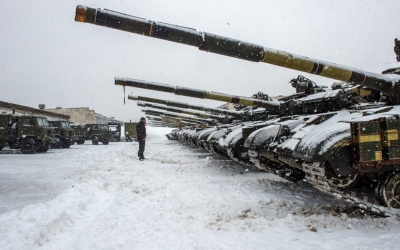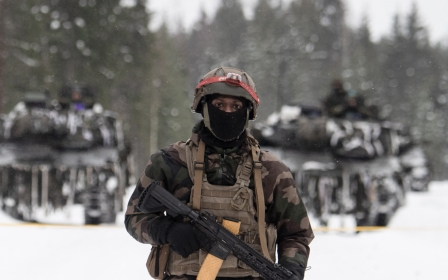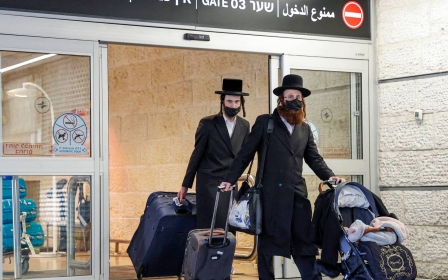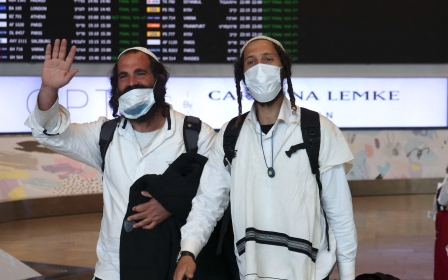Ukraine-Russia crisis: Israel 'supports Kyiv's territorial integrity and sovereignty'

Israel said that it "supports the territorial integrity and sovereignty of Ukraine" on Wednesday, in its first official statement on the crisis between Kyiv and Moscow.
The foreign affairs ministry said Israel is willing to transfer humanitarian assistance to Ukraine, and that it is "concerned about the welfare of thousands of Israeli citizens living in Ukraine and the welfare of the large Jewish community in the country".
The note made no mention of Russia, Haaretz pointed out, likely a reflection on the difficult position in which the potential conflict has put Israel.
The country is a long-standing, close ally of the United States, yet also has strong relationships with both Russia and Ukraine.
Israel and Ukraine signed a major trade agreement in 2019, and last December, Ukrainian Defence Minister Oleksiy Reznikov visited Israel.
But for over six years, Israel has coordinated its air force activity over Syria with Russia, allowing Israel to target Iranian-backed forces stationed in Syria while Moscow controls the airspace. So far, Russia has not stood in Israel's way.
Russian President Vladimir Putin ordered the deployment of troops to two rebel-held areas in eastern Ukraine, Donetsk and Luhansk, on Monday, accelerating a crisis the West fears could unleash a major war.
Putin's announcement drew international condemnation and immediate US sanctions aimed at halting business activity in the breakaway regions and banning imports of all goods from those areas.
The EU and UK also announced sanctions that target the Russian banking sector and oligarchs.
'More careful than any other foreign minister'
Wednesday's statement comes days after Israeli Foreign Minister Yair Lapid said that Israel needed to be cautious in its approach to the crisis.
"Traditionally, of course, we go with the Americans," Lapid told Israel's Channel 12 on Sunday. But he noted that there are also large Jewish communities in Russia and Ukraine, adding: "our border with Syria is, for all intents and purposes, a border with Russia".
In an interview with The Jerusalem Post, Lapid said he has to be “more careful than any other foreign minister in the world”.
'Traditionally, of course, we go with the Americans'
- Yair Lapid, Israeli foreign minister
“I think there is an understanding of this,” he said. “This is where the special relationship [with the US] comes into play. They understand this because they understand us. We have a mutual vocabulary, a language that we share.”
On Monday, Israel moved its embassy in Ukraine from Kyiv to Lviv, and Israeli Prime Minister Naftali Bennett last week called on the 10,000-15,000 Israeli citizens in the country to "come home" while they still can, according to the Times of Israel.
Last Thursday, Kyiv's foreign ministry summoned Israel's ambassador to the country and demanded an explanation that Israel was requesting Russia's help in evacuating its citizens from Ukraine.
Israel has also refused to provide Ukraine with batteries for its Iron Dome's short-range missile interceptor, according to Israeli news website Ynet.
Israel is also home to over 500,000 Ukrainian expats and over 400,000 Russian immigrants, meaning a war between the two countries would also become a domestic political issue.
"Israel hopes for a diplomatic solution which will lead to calm," its statement said on Wednesday, "and is willing to help if asked."
In reaction to the statement, an Israeli diplomatic official told Haaretz: "We did the minimum required so now we can go back to sitting on the sidelines."
Middle East Eye propose une couverture et une analyse indépendantes et incomparables du Moyen-Orient, de l’Afrique du Nord et d’autres régions du monde. Pour en savoir plus sur la reprise de ce contenu et les frais qui s’appliquent, veuillez remplir ce formulaire [en anglais]. Pour en savoir plus sur MEE, cliquez ici [en anglais].





